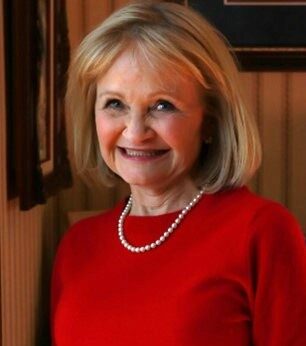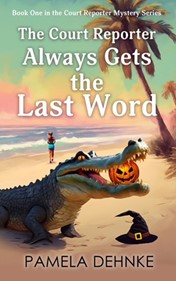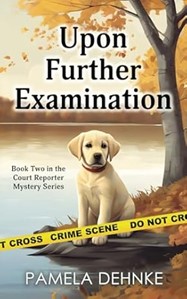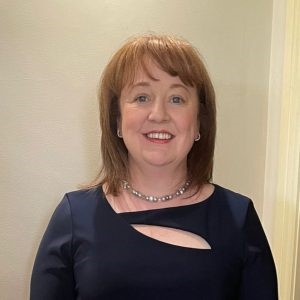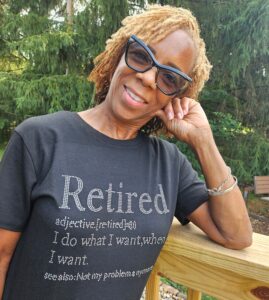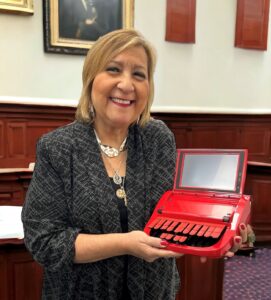By Pamela Dehnke
“You know,” my mother told me, “my uncle was a court reporter during the Great Depression, and he made enough money, not only to survive the Depression, but to buy income property as well.”
“I don’t know, Mom. It’s another college course and expensive,” I responded. I was living in Alameda, Calif., in the San Francisco Bay Area at the time. But Mom was not giving up.
“My friend Carolyn is a reporter in the city, and she just purchased a home in Tiburon.”
My eyes lit up. It takes high stakes to afford a home in Tiburon. My answer was a no-brainer: “I’m in.”
Court reporting was not an easy course. The classes involving English, science, and law weren’t that difficult since I’d taken that sort of material in college, but the little court reporting machine was a devil for me to conquer. I took the state exam several times, but I’d get so nervous I couldn’t keep my fingers on the keys. Finally, I visited a hypnotist who gave me pointers for relaxing during the exam, and I passed the test with flying colors. I was a licensed California Court Reporter. I was floating on a cloud.
I worked in court for a while but decided to go out on my own as a deposition reporter — the best decision I’ve ever made. I signed up with various reporting agencies and had my pick of jobs. My first depo was on the 23rd floor at the Embarcadero overlooking San Francisco Bay and the Golden Gate Bridge. The sun was shining, sailboats were gliding across the water, and I had the view seat. My first thought on starting the depo was And I’m getting paid for this! The attorneys were all so accommodating. Was my chair comfortable? They were bringing in sandwiches for lunch. What kind would I like? Afternoon break consisted of plates of Mrs. Fields cookies.
It was an amazing career. I got in on the ground floor of realtime reporting which was fascinating. Challenges inspire me, so I took the hard cases no one else wanted which led to more income and some very funny days. Of course, at times it was also quite difficult and sad. On one case I was working, a woman was testifying about her husband’s death, how they’d spent a lifetime together. I tried biting my tongue and gritting my teeth, but I couldn’t stop the tears from rolling down my cheeks. Opposing counsel spoke up.“I’d like the record to reflect that Madame Reporter is crying.”
I’d been spending my vacations in Ashland, Ore., since 1981, and in 2014 the opportunity arose for me to purchase Nightingales Bed and Breakfast — again a decision that was a no-brainer. I’d fallen in love with the Oregon Shakespeare Festival and Ashland on my first visit. When I moved here, I felt like I’d come for summer vacation and brought all my things with me.
My thought was to run the inn in the summer and return to California to report during the winter months; however, after serving breakfast and cleaning up the kitchen, I always found myself sitting down to write. I’d been writing since I could form words and sentences. In high school my English teacher entered one of my stories in a contest. I won, and I was published. During my college years I wrote a couple of romances. Life was busier when I became a court reporter, but I continued to journal as I’d done since I was eight years old. Thus once I settled in Ashland, my novel The Diary of an Extraordinarily Ordinary Woman was born.
I’ve been a voracious reader all my life with mysteries being my favorite genre. During the early years of the Left Coast Crime conventions, I worked on the committees to put them together. In 2009 I was the fan guest of honor at the conference in Hawaii. I hosted the hospitality suite for the 2003 Bouchercon. I’ve attended Crimefest in Bristol, England.
At these conferences I’d regale fellow authors with my adventures in court reporting. I had so much fun reciting the stories of the drama — and the laughter and tears of those days — that I started writing books about them and basing my characters on my wacky family and friends. The books are set in 1996, and my court reporter protagonist, Addie, lives in the house I grew up in a few blocks from the beach in Santa Monica, Calif. The opening scene in the first book actually happened: Addie is reporting a deposition when the witness takes a dive across the table and begins choking the questioning attorney.
In the second book in the court reporter series, Upon Further Examination, I brought the mothers back from the Sorority Sisters series set in 1941. They’re 72 years old now, and they must help Addie solve the mystery of who murdered the man they found floating in Lake Oswego near Portland, Ore.
Pamela Dehnke is a retired court reporter who now owns Nightingales Bed and Breakfast in Ashland, Ore. Pamela is the author of The Diary of an Extraordinarily Ordinary Woman; The Court Reporter Always Gets the Last Word, the first book in the Court Reporter Mysteries; Upon Further Examination, the second in the Court Reporter Mysteries; Wrong Place, Wrong Time, the Prequel to the Court Reporter Mysteries; as well as Cabin 12, the first book in the Sorority Sisters Mysteries. Visit Pamela at pamdehnke.com.
